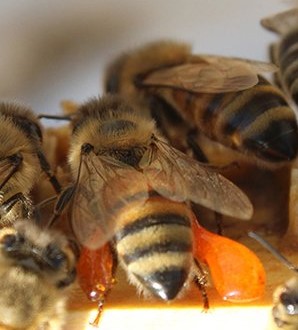Propolis: Nature’s Bee Glue and Its Significance
Introduction to Propolis: Propolis, often referred to as "bee glue" by beekeepers, is a remarkable product created by honey bees that holds numerous benefits for both bees and humans. This substance, while sometimes posing a challenge during hive inspections due to its adhesive nature, plays a crucial role within the hive's ecosystem. Witnessing a beekeeper struggling to open a hive often includes mutterings about this sticky "bee glue."
Etymology and Purpose: The term “Propolis” is derived from Greek, with "Pro" meaning "for," "in front of," or "at the entrance to," and "Polis" meaning "community" or "city." Together, it translates to "protect the hive," highlighting its vital protective function. The honey bee’s choice to utilize resin aligns with nature’s harmony, bringing in a resource that defends the hive from external threats.
Propolis Production: Propolis is the final product resulting from the purposeful collection of resin by honey bees. Worker bees diligently gather resin from plants and trees, transporting it back to the hive where it's combined with salivary secretions. This mixture is used to seal drafty air holes, thereby safeguarding the hive from intrusive pests such as ants, slugs, flies, and beetles, which might otherwise take advantage of the hive’s warm, food-rich environment.
Protective Benefits: The use of propolis extends to deterring predatory creatures like wasps and mice and acts as a barrier against cold winter elements, wind, and moisture. While it might not deter larger threats like bears or raccoons from breaking in, it certainly makes their attempts to reach the coveted protein-packed larvae and honey more strenuous.
Functional Roles Within the Hive: Beyond its physical protective properties, propolis holds significant antimicrobial features, making it an essential element for creating a sterile hive environment. By sealing cracks and repairing structural damage, it enhances the hive's integrity and defends against bacterial and fungal threats, contributing to the colony's overall health and resilience.
Role of Resin in Propolis Production: The entire process begins with resin, a vital plant defense mechanism that honey bees exploit for their benefit. Resin, produced in response to physical damage or pest attacks, serves plants as a healing and repair agent, sealing wounds and protecting against pathogens. With natural waterproof and flexible properties, it proves advantageous for both plant protection and adaptation for use by bees.
REFRENCES
Propolis

